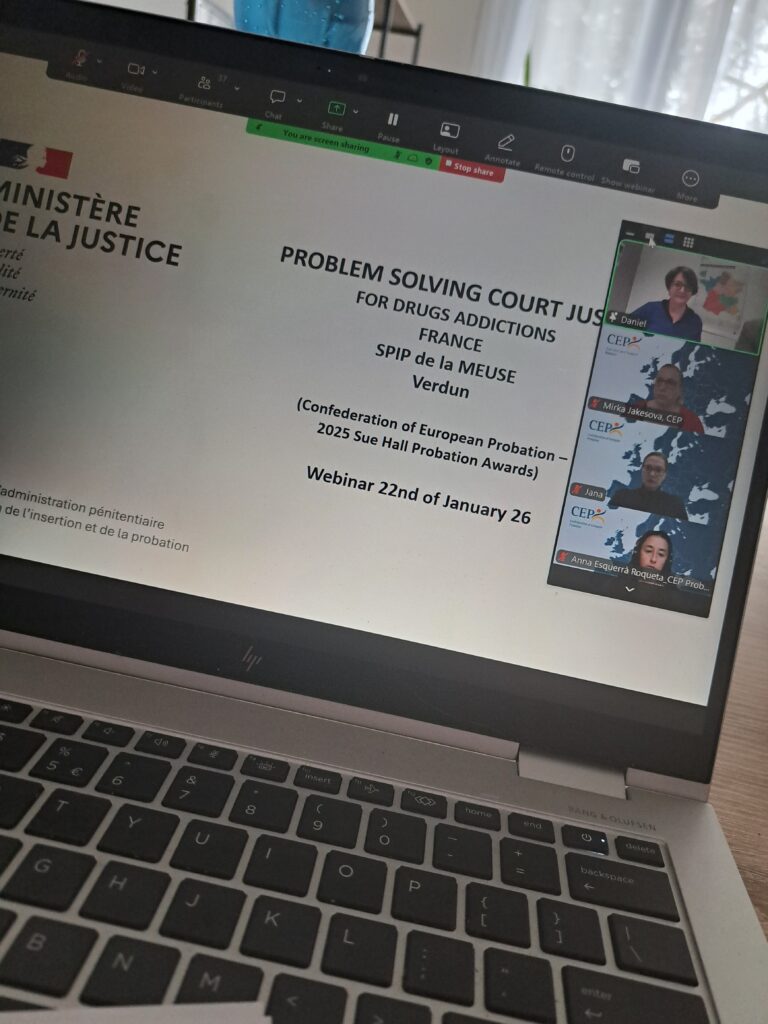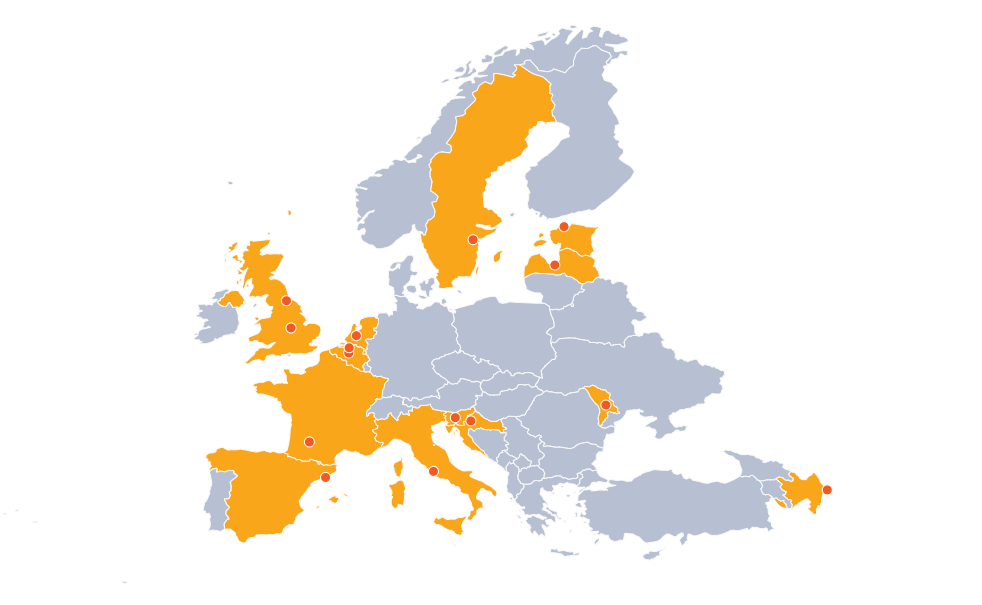Previous Article
News
EU’s cross-border instruments on criminal detention could improve social rehabilitation and more
This article is written by: Jonas Grimheden, Senior Policy Manager at the European Union Agency for Fundamental Rights. (This contribution is made in an individual capacity and any view expressed does not necessarily represent that of his employer.)
In the first decade of this century, the European Union adopted several instruments with relevance for criminal detention and alternatives. The potential of some of these instruments in terms of their stated goals should be further tapped to ensure an effective area of justice. Doing so would lead gains in terms of:
- Increased mutual trust between the EU Member States;
- Better compliance with international human rights law obligations of the EU Member States;
- Cost savings;
- Reduced recidivism.
The 2002 European Arrest Warrant is relatively well-known in the EU, this is much less the case for the three somewhat similar instruments adopted in 2008–2009 (see Criminal detention and alternatives): the Framework Decisions on transfer of prisoners (2008/909), probation and alternative measures (2008/947) and the so-called European Supervision Order (2009/829), that all were to have been implemented by late 2012. Actually it took several more years to implement them, and the actual application to date has not been that significant, even though the usage is increasing. There are several reasons for the slow implementation and low usage but rather than focusing on these, the listed four points on potential gains will briefly be explored.
Mutual trust
Firstly, mutual trust in criminal justice is not self-evident. Justice professionals in a Member State do not necessarily perceive of, or know, justice, prison or probation systems in other EU Member States to be at a ‘sufficient level’ to transfer a suspect, accused or sentenced person without reflection. The Court of Justice of the European Union in the important Aranyosi and Căldăraru ruling (Joined Cases, C-404/15 and C-659/15 PPU, Pál Aranyosi and Robert Căldăraru, 5 April 2016) underscored that there is even an obligation (in relation to an EAW) to consider detention conditions before proceeding with a transfer. The better the situation of fundamental rights is, such as detention conditions, the stronger the mutual trust. Making use of the actual overarching goals of the three Framework Decisions from 2008 and 2009, of social rehabilitation and greater use of alternatives to detention, would boost mutual trust among the EU Member States.
Better compliance
Secondly, international human rights law, such as expressed in Article 6.1 of the so-called Tokyo Rules (the UN Standard Minimum Rules for Non-custodial Measures), refers to pre-trial detention as a means of “last resort” as does Article 37 (b) of the UN Convention on the Rights of the Child. Detention as a last resort is in particular the requirement during pre-trial, when the suspected or accused person should enjoy the presumption of innocence. Statistics such as that from the EU-funded, Council of Europe data (SPACE) show that overcrowding is a fact in several EU Member States, and the sheer number of detentions indicates that detention is far from being the last resort. As someone suggested in a discussion on alternatives to detention: we should not talk about alternatives to detention but about alternatives to non-custodial measures. In this way non-custodial measures is the default.
Reduce costs
Thirdly, the high number of detentions, and even long detention periods, both pre- and post-trial, is costly for the public purse. Reduced detention and greater use of alternatives would reduce spending.
Reduce recidivism
Fourthly and finally, recidivism could reasonably be reduced if the three instruments were to be applied more systematically. Reduced overcrowding, more attention to social rehabilitation where education and job-training, as well as civic and social preparation for a ‘return’ to society is central. And overall greater use of alternatives to detention would likely contribute to fewer crimes being committed, as better ‘socially rehabilitated’ persons or persons who have not even been ‘de-habilitated’ by being detained to begin with, are less likely to commit crime.
In addition to boosting mutual trust, bringing EU Member States in line with international human rights law and reducing costs, greater application of the three instruments would likely also reduce recidivism and the risk of radicalisation by providing for more humane detention conditions. The stated goals of the three instruments of increased social rehabilitation, if taken in its reasonably wide sense, and reduced use of detention are worthy of greater attention to tap their full potential.
In order to see more rapid progress, the European Union Agency for Fundamental Rights has suggested that “the availability of EU funds could be linked to recommendations by monitoring mechanisms, such as the European Committee on the Prevention of Torture (CPT), on detention conditions, so as to create incentives, and realistic opportunities, for addressing identified shortcomings as a priority.
EU Member States have largely implemented, and started applying, three instruments on transferring prison sentences, probation measures and alternative sanctions, as well as pre-trial supervision measures, to other Member States. This report provides an overview of their first experiences with these measures, highlighting both best practices and shortcomings. Click here to read the report.

Related News
Keep up to date with the latest developments, stories, and updates on probation from across Europe and beyond. Find relevant news and insights shaping the field today.
New

Alternatives to pre-trial detention, Community Sanctions and Measures, Framework Decisions, Technology
Future of Criminal Justice: CEP’s Contribution to Key 2025 Dialogues
27/01/2026
Throughout 2025, CEP and its representatives actively participated in the online Technical meetings ahead of the HLF as well as the High Level Forum on Future of Criminal Justice taking place on 4-5 March 2025, 20-21 May 2025 and 1-2 October 2025 in Brussels, Belgium.
Recap

Alternatives to pre-trial detention
Recap: Webinar on Alternatives to Detention 2026
26/01/2026
On Thursday 22 January, CEP hosted the first webinar of 2025 on the topic of Alternatives to Detention. The session led by Ms. Marina Pajoni from the French Prison and Probation Service titled „Problem Solving Justice in Pracitce: The Meuse Probation Service´s Approach to Drug Addiction“ introduced an innovative programme developed by the Meuse Probation Service in close cooperation with the French Ministry of Justice.
New

Education and Training
CEP launches an interactive European map of probation education and training institution contacts
22/01/2026
The CEP is pleased to inform its members that a new dedicated section has been developed on the CEP website featuring an interactive map of Europe.
New

CEP Events
CEP activity calendar 2026
20/01/2026
As we begin the new year, we would like to thank all CEP members, partners, and participants for your continued engagement and valuable contributions. Your involvement plays an essential role in shaping CEP’s work and activities.
We are pleased to share the CEP calendar for 2026, which provides an overview of the events planned for the year ahead. We look forward to continuing our collaboration and welcoming you to upcoming CEP activities throughout the year.
Thank you for being part of the CEP community.
New

CEP members, Gender-based violence
Interventions Alliance’s Eden House Recognized as Outstanding
15/01/2026
CEP is delighted to share that Eden House, an Interventions Alliance residential service for women with high-risk or complex needs on probation, has been rated “Outstanding” overall by HM Inspectorate of Probation. In 2022, Eden House was honored with the CEP Public Protection Award. Our sincere congratulations to the team for this remarkable achievement.
New

Education and Training
The Judicial Training Dashboard
14/01/2026
The European Training Platform (ETP) is a search tool for justice professionals. You can find self-learning materials on a great variety of EU law practice areas and related topics, as well as links to training providers’ homepages and course catalogues.
Subscribe to our bi-monthly email newsletter!
"*" indicates required fields
- Keep up to date with important probation developments and insights.

